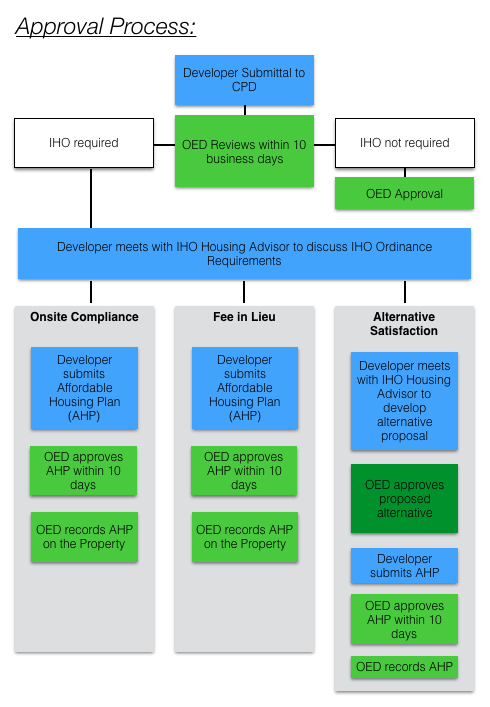Developers sometimes struggle to understand the complex rules imposed by local inclusionary housing programs. Communities that want developers to succeed in delivering affordable housing will often take special steps to make compliance as simple as possible. Many communities have created handouts and other educational material to help potential developers to quickly understand their options under the inclusionary program.

Denver, Colorado
Denver hired an independent housing advisor to meet with developers and help them to understand Denver’s Inclusionary Housing Ordinance (IHO). Developers meet with the advisor before they submit an Affordable Housing Plan (AHP) outlining their strategy for complying with the ordinance.
Denver developers have three options for satisfying their affordable housing obligations: they can build on site, pay an in-lieu fee, or propose some other alternative. Alternatives might include off-site development, land dedication, or any other creative approach to meeting Denver’s need for affordable housing. Developers proposing one of these alternatives are required to meet with the city’s housing advisor to develop a written proposal for the alternative approach, which is reviewed and approved by the housing director.
Eagle County, Colorado
Eagle County provides an electronic spreadsheet that allows an interested party to type in the basic details of a proposed development (number of units or square feet of different intended land uses). The spreadsheet returns specific requirements in terms of actual numbers of units or dollars of in-lieu payments that would be required under each permitted alternative. The spreadsheet also includes a description of the inclusionary program legislation that established each alternative.


